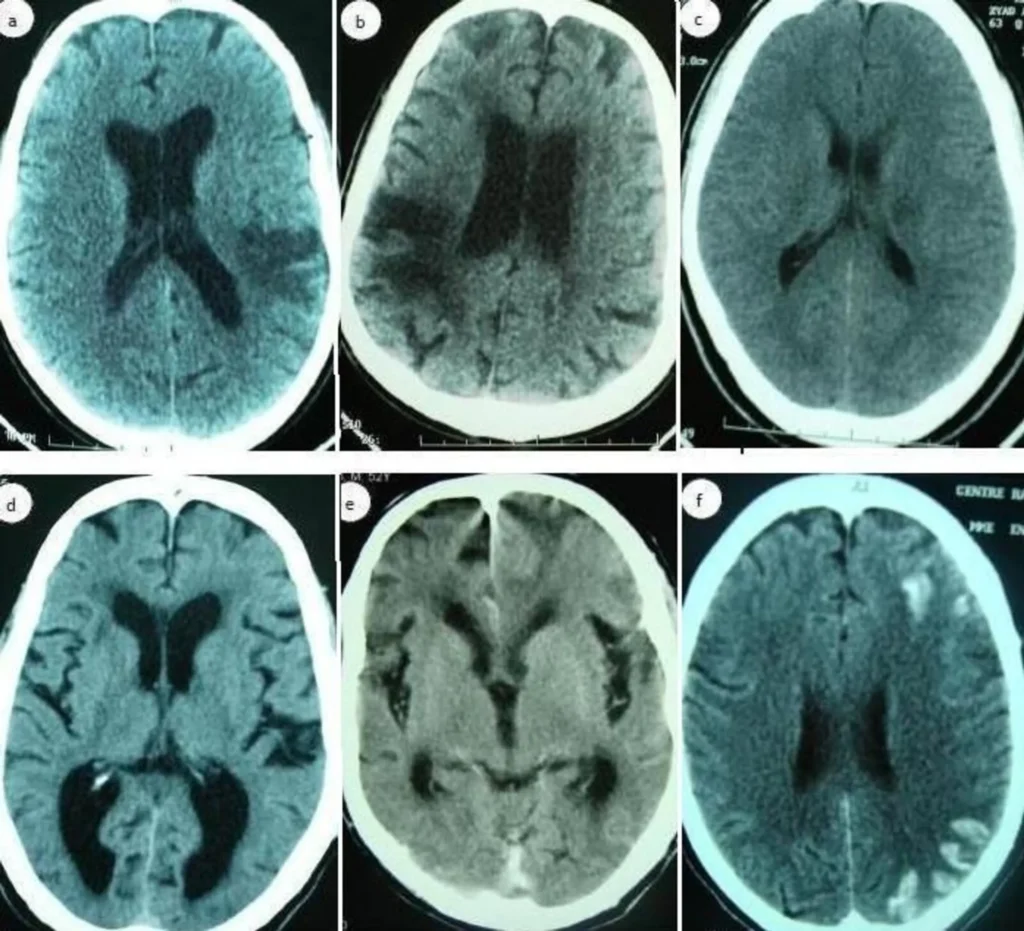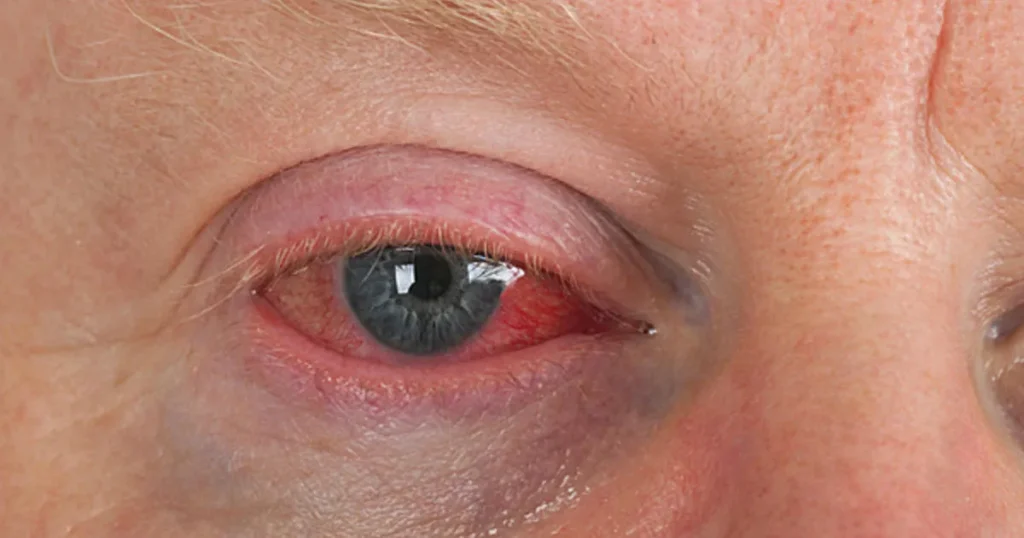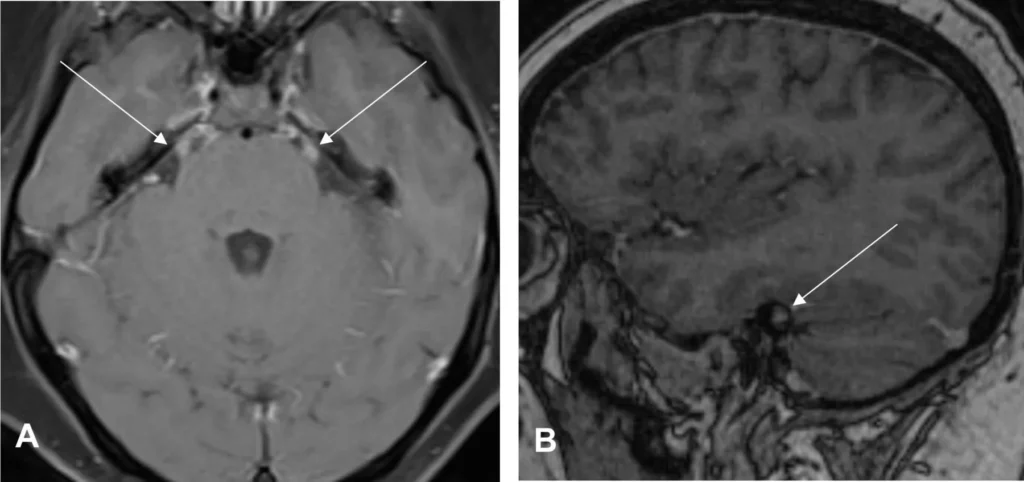What Are The Long-Term Complications Of Syphilis?
Syphilis is a sexually transmitted infection caused by the bacterium Treponema pallidum. Although it can be easily treated with antibiotics in its early stages, if left untreated, syphilis can lead to a range of long-term complications. These complications can affect various organs and systems in the body, potentially causing significant health problems.
One of the long-term complications of syphilis is called tertiary syphilis. This stage of the infection typically occurs years or even decades after the initial infection. Tertiary syphilis can affect multiple organs, including the heart, brain, blood vessels, bones, and skin. It is characterized by the formation of gummas, which are soft, tumor-like growths that can damage the affected tissues. Gummas can develop in different areas of the body, leading to diverse symptoms and complications.
In some cases, syphilis can also cause neurosyphilis, which is the infection of the nervous system. Neurosyphilis can occur at any stage of the disease, but it is more likely to develop during its later stages. This complication can lead to a range of neurological symptoms, such as headache, difficulty coordinating movements, tremors, paralysis, and even dementia. If left untreated, neurosyphilis can cause severe damage to the brain and the spinal cord.
- Cardiovascular complications
Syphilis can also affect the cardiovascular system, leading to a condition called cardiovascular syphilis. This complication can occur during any stage of syphilis, but it is more common in the late stages of the disease. Cardiovascular syphilis can cause abnormalities in the blood vessels, leading to the formation of aneurysms, which are bulges in the walls of the arteries. Aneurysms can weaken the blood vessels and increase the risk of rupture, potentially resulting in severe bleeding and organ damage.
| Symptom/Complication | Description |
|---|---|
| Gummas | Tumor-like growths that can damage various organs and tissues. |
| Neurosyphilis | Infection of the nervous system, leading to neurological symptoms. |
| Cardiovascular syphilis | Affects the blood vessels, causing aneurysms and increasing the risk of rupture. |
These are just a few examples of the long-term complications that can arise from untreated syphilis. It is essential to seek prompt medical attention if you suspect you may have been exposed to the infection. Early diagnosis and treatment are crucial in preventing the development of severe complications and preserving overall health.
How Does Untreated Syphilis Affect Women’s Reproductive System?
Untreated syphilis can have serious effects on women’s reproductive system. Syphilis is a sexually transmitted infection caused by the bacteria Treponema pallidum. If left untreated, the infection can progress through different stages and lead to various complications, including those affecting the reproductive system.
One of the most concerning complications of untreated syphilis in women is the development of pelvic inflammatory disease (PID). PID is an infection of the reproductive organs, including the uterus, fallopian tubes, and ovaries. It can cause chronic pelvic pain, scarring, and even infertility. Syphilis can increase the risk of developing PID by weakening the immune system and allowing other bacteria to invade the reproductive tract.
In addition to PID, untreated syphilis can lead to complications during pregnancy. The bacteria can cross the placenta and infect the unborn baby, resulting in congenital syphilis. This can result in stillbirth, prematurity, low birth weight, or long-term developmental issues for the baby. Syphilis during pregnancy also increases the risk of miscarriage and can cause damage to the placenta.
Can Syphilis Cause Complications During Pregnancy?
Syphilis is a sexually transmitted infection caused by the bacterium Treponema pallidum. It can lead to various complications if left untreated, including complications during pregnancy. This blog post will explore the potential risks and complications that syphilis can pose for pregnant women and their unborn babies.
1. Maternal Complications: Syphilis can have significant adverse effects on a pregnant woman’s health. If a pregnant woman is infected with syphilis, it can increase the risk of complications such as miscarriage, preterm labor, and stillbirth. untreated syphilis during pregnancy can lead to the development of a severe form of the disease known as tertiary syphilis, which can have devastating consequences for both the mother and the baby.
2. Congenital Syphilis: When syphilis is transmitted from a pregnant woman to her unborn baby, it is referred to as congenital syphilis. This transmission can occur at any stage of pregnancy, including during childbirth. Congenital syphilis can result in a range of complications for the baby, including stillbirth, low birth weight, and developmental abnormalities. Moreover, infants born with congenital syphilis may experience long-term health issues, such as bone deformities, organ damage, and neurological problems.
3. Impact on Newborns: Syphilis can have a profound impact on newborns, even if they do not exhibit immediate symptoms. Infants born with congenital syphilis may initially appear healthy but can develop complications later on. These complications can include issues with hearing, vision, teeth, and the skeletal system. In some cases, the infection may remain latent and only become symptomatic years later, causing serious health problems.
- Prevention and Treatment:
| Prevention: | Prevention of syphilis complications during pregnancy primarily involves regular prenatal care and routine screenings for sexually transmitted infections. Early detection and prompt treatment of syphilis in pregnant women can significantly reduce the risk of transmission to the baby. |
| Treatment: | Syphilis can be effectively treated with antibiotics, such as penicillin, both during pregnancy and outside of pregnancy. Treatment should be administered by a healthcare professional to ensure proper dosage and to monitor the efficacy of the medication. It is crucial for pregnant women diagnosed with syphilis to complete the full course of treatment to minimize complications. |
Syphilis And The Risk Of Stillbirth Or Newborn Death
Syphilis, a sexually transmitted infection caused by the bacterium Treponema pallidum, can have severe consequences if left untreated. One of the most alarming risks associated with syphilis is the increased likelihood of stillbirth or death of a newborn. When a pregnant woman is infected with syphilis, the infection can be transmitted to the fetus through the placenta, leading to a condition known as congenital syphilis. This condition poses a significant threat to the health and survival of the baby.
The Impact of Congenital Syphilis
Congenital syphilis can have devastating effects on the developing fetus. If the infection is not detected and treated during pregnancy, it can result in miscarriage, stillbirth, or early infant death. Infants who survive may face a multitude of health complications, both immediate and long-term. These can include prematurity, low birth weight, severe anemia, bone deformities, neurological abnormalities, and developmental delays. The consequences of congenital syphilis highlight the importance of early detection and treatment of syphilis in pregnant women to safeguard the health and wellbeing of both the mother and the baby.
Prevention and Screening
Given the serious consequences associated with congenital syphilis, it is crucial to prioritize prevention and screening efforts. Regular prenatal care visits are essential for all pregnant women, as they provide an opportunity for healthcare providers to screen for syphilis and other potential infections. Early identification of syphilis allows for timely treatment with antibiotics, significantly reducing the risk of adverse outcomes for both the mother and the baby. it is important to promote safe sexual practices, including consistent and correct condom use, and to encourage routine testing for sexually transmitted infections for individuals at risk.
- Table: Impact of Congenital Syphilis on Infants
| Health Complications | Consequences |
|---|---|
| Prematurity | Increased risk of respiratory distress and other complications |
| Low Birth Weight | Higher chances of developmental delays and long-term health issues |
| Severe Anemia | Impaired oxygen transport and organ dysfunction |
| Bone Deformities | Difficulties in mobility and potential physical disabilities |
| Neurological Abnormalities | Cognitive impairments, seizures, and developmental delays |
Lorem ipsum dolor sit amet, consectetur adipiscing elit. Vivamus sodales ipsum at erat consectetur tempor. Maecenas euismod ante quam, eu laoreet leo fringilla eget. Nam iaculis facilisis erat sit amet gravida. Curabitur a justo vitae libero ullamcorper interdum at sed felis. Nulla fermentum efficitur eros, ac commodo libero tincidunt vitae. Mauris ullamcorper sollicitudin leo et dapibus. Aliquam erat volutpat.
The Impact Of Syphilis On Fetal Development
Syphilis is a sexually transmitted infection caused by the bacterium Treponema pallidum. While it can be easily treated with antibiotics if detected early, untreated syphilis can have serious consequences, particularly for pregnant women and their unborn babies. In this blog post, we will explore the impact of syphilis on fetal development.
During pregnancy, syphilis can be transmitted from an infected mother to her unborn baby through the placenta. This is known as congenital syphilis and can cause a range of complications in the developing fetus. The effects of syphilis on fetal development can vary depending on the stage of pregnancy at which the infection occurs and how long it goes untreated.
One of the most significant impacts of syphilis on fetal development is the risk of stillbirth or newborn death. Studies have shown that untreated syphilis during pregnancy increases the risk of fetal death, particularly in the later stages of gestation. This underscores the importance of early detection and treatment of syphilis in pregnant women.
- In addition to the risk of stillbirth, syphilis can also lead to various other complications in the fetus. These may include:
- Low birth weight
- Premature birth
- Developmental delays
- Neurological problems
- Skeletal abnormalities
| Complications | Description |
|---|---|
| Low birth weight | Infants born to mothers with untreated syphilis are more likely to have a low birth weight, which can contribute to various health issues. |
| Premature birth | Syphilis increases the risk of premature birth, which can lead to respiratory problems and other complications in the newborn. |
| Developmental delays | Syphilis can interfere with the normal development of the fetus, leading to delays in reaching developmental milestones. |
| Neurological problems | Untreated syphilis can cause severe neurological problems in the fetus, including cognitive impairment, seizures, and hearing loss. |
| Skeletal abnormalities | In some cases, syphilis can affect the development of the skeleton in the fetus, leading to deformities such as bowed limbs or a saddle-shaped nose. |
It is important to note that these complications can be prevented with early diagnosis and treatment of syphilis in pregnant women. Regular prenatal care, including syphilis screening, is crucial to identify and address the infection promptly.
syphilis can have a detrimental impact on fetal development when left untreated during pregnancy. From the risk of stillbirth to a range of other complications, the consequences of syphilis for the developing fetus are significant. Early detection and treatment are essential to protect the health and well-being of both the mother and the baby. If you are pregnant or planning to become pregnant, it is important to discuss syphilis testing and prevention with your healthcare provider.
Neurological Complications Of Syphilis In Women
Neurological complications of syphilis can have serious consequences for women. Syphilis, a sexually transmitted infection caused by the bacterium Treponema pallidum, can progress through several stages if left untreated. The third stage, known as tertiary syphilis, can affect various systems in the body, including the nervous system. In women, neurological complications of syphilis can lead to significant morbidity and even mortality.
One of the most notable neurological complications of syphilis in women is neurosyphilis. This condition occurs when the bacterium invades the central nervous system, including the brain and spinal cord. Neurosyphilis can manifest in different forms, such as asymptomatic, meningovascular, general paresis, and tabes dorsalis. Each of these forms presents distinct symptoms and can result in varying degrees of impairment.
Another neurological complication associated with syphilis in women is ocular syphilis. This condition can develop when the bacterium affects the eyes and the optic nerves. Ocular syphilis can cause vision problems, including blurriness, blind spots, and blindness. It can also result in ocular inflammation, such as uveitis or retinitis. Prompt diagnosis and treatment are crucial to prevent permanent damage to the eyes.
- Neurosyphilis
- Ocular syphilis
- Vision problems
| Forms of Neurosyphilis | Symptoms |
|---|---|
| Asymptomatic neurosyphilis | No noticeable symptoms |
| Meningovascular neurosyphilis | Stroke-like symptoms, headache, confusion |
| General paresis | Personality changes, dementia |
| Tabes dorsalis | Degeneration of sensory nerves, muscle weakness |
Syphilis-Related Eye And Ear Complications In Women
Syphilis, a sexually transmitted infection caused by the bacterium Treponema pallidum, can lead to various complications if left untreated. While the disease primarily affects the genital area, it can also have severe implications for other parts of the body, including the eyes and ears. In women, syphilis-related eye and ear complications can result in significant discomfort and impaired sensory function if not addressed promptly. Common eye complications include uveitis, episcleritis, and neurosyphilis, while ear complications may include hearing loss and inflammation of the auditory canal.
Uveitis is a common ocular manifestation of untreated syphilis in women. It refers to inflammation of the uvea, the middle layer of the eye that consists of the iris, ciliary body, and choroid. Uveitis can cause eye redness, pain, blurred vision, sensitivity to light, and increased floaters in the visual field. If left untreated, uveitis can lead to complications such as glaucoma, cataracts, and permanent vision loss.
Episcleritis is another eye complication that can occur in women with syphilis. It involves inflammation of the episclera, the thin layer of tissue covering the white part of the eye (sclera). Episcleritis can cause redness, localized pain, and a gritty or foreign body sensation. Although episcleritis typically resolves on its own within a few weeks, appropriate treatment for syphilis is essential to prevent exacerbation or recurrence of the condition.
Neurosyphilis is a more severe form of the disease that affects the nervous system, including the eyes and ears. It can lead to vision problems, hearing loss, vertigo, and tinnitus (ringing in the ears). Neurosyphilis requires immediate medical attention, as it can cause irreversible damage if left untreated. Prompt diagnosis and appropriate treatment of syphilis can help prevent the development of neurosyphilis and reduce the risk of complications affecting the eyes and ears.
Skin And Mucosal Manifestations Of Syphilis
Syphilis, a sexually transmitted infection caused by the bacteria Treponema pallidum, can lead to various long-term complications if left untreated. One of the areas where syphilis can have a significant impact is on the skin and mucosal membranes. Skin and mucosal manifestations of syphilis are diverse and can occur at different stages of the infection. Recognizing these manifestations is crucial for early diagnosis and appropriate treatment.
During the primary stage of syphilis, a characteristic skin lesion called a chancre usually appears at the site of infection. The chancre is typically painless, round or oval-shaped, and indurated. It may go unnoticed in certain cases due to its painlessness and location, such as in the genital area or inside the mouth. The chancre is highly infectious, and contact with the lesion can transmit the bacteria to others.
In the secondary stage of syphilis, a wide range of skin and mucosal manifestations can occur. These manifestations may include a generalized rash, typically involving the palms and soles. The rash can present as reddish or copper-colored macules, papules, or pustules. It may be accompanied by fever, fatigue, and swollen lymph nodes. Other mucosal manifestations can include lesions in the mouth, throat, or genital area.
The Connection Between Syphilis And Cardiovascular Complications
Syphilis is a sexually transmitted infection caused by the bacterium Treponema pallidum. While it can affect various parts of the body, including the skin, mucous membranes, and nervous system, one lesser-known but significant aspect of this disease is its connection to cardiovascular complications. Syphilis can lead to serious damage to the heart and blood vessels, resulting in potentially life-threatening conditions.
One of the most severe cardiovascular complications associated with syphilis is syphilitic aortitis. This condition involves inflammation of the aorta, the largest artery in the body. As the infection progresses, the inflammation can weaken the walls of the aorta, leading to the formation of aneurysms. If left untreated, these aneurysms can rupture and cause severe internal bleeding, which is often fatal.
In addition to aortitis, syphilis can also cause the development of coronary artery lesions. The bacterium can directly invade the blood vessels of the heart, leading to the formation of plaques and the narrowing of the arteries. This can result in reduced blood flow to the heart muscle, leading to a condition known as ischemic heart disease. Over time, ischemic heart disease can increase the risk of heart attacks, heart failure, and other cardiovascular complications.
- Furthermore, another cardiovascular complication associated with syphilis is endocarditis. Endocarditis refers to the inflammation of the inner lining of the heart, including the valves. The bacterium can invade the heart valves, leading to their destruction and dysfunction. This can result in valve regurgitation, where the valves fail to close properly and allow blood to flow backward. As a result, the heart has to work harder to pump blood, leading to strain and potential heart failure.
- It is important to note that syphilis can also directly affect the heart’s electrical system, leading to abnormal heart rhythms and arrhythmias. These can disrupt the heart’s normal functioning and increase the risk of complications such as blood clots and stroke.
| Cardiovascular Complications of Syphilis: |
|---|
| Syphilitic aortitis |
| Coronary artery lesions |
| Endocarditis |
| Abnormal heart rhythms |
Given the potential severity of these cardiovascular complications, it is crucial to diagnose and treat syphilis early. Antibiotics such as penicillin are highly effective in treating the infection and preventing further damage to the cardiovascular system. Regular screening for sexually transmitted infections, including syphilis, is essential for early detection and prompt treatment.
It is important to spread awareness about the connection between syphilis and cardiovascular complications. Understanding the potential risks associated with syphilis can encourage individuals to prioritize safe sexual practices, get tested regularly, and seek treatment if necessary. By taking proactive measures, we can reduce the incidence of syphilis-related cardiovascular complications and improve overall public health.
How Does Syphilis Affect The Nervous System?
Syphilis, a sexually transmitted infection caused by the bacterium Treponema pallidum, can have serious and long-lasting effects on the human body. One of the areas most impacted by syphilis is the nervous system. When left untreated, syphilis can progress to its late stages and invade the central nervous system, resulting in various neurological complications.
The nervous system is composed of the brain, spinal cord, and a network of nerves throughout the body. Syphilis affects the nervous system by causing inflammation and damage to these vital components. As the infection progresses, it can lead to neurosyphilis, a condition in which the bacterium directly attacks the central nervous system.
Neurosyphilis can manifest in different forms, depending on which part of the nervous system is affected. The most common type is known as general paresis, which is characterized by progressive dementia, personality changes, and neurological dysfunction. Another type is tabes dorsalis, which affects the spinal cord and causes problems with coordination, sensory perception, and reflexes.
Complications Of Syphilis In Women’s Genital Area
Syphilis is a sexually transmitted infection caused by the bacterium Treponema pallidum. It can have serious implications for women’s health, particularly in the genital area. When left untreated, syphilis can lead to various complications in this region.
1. Genital Ulcers: One of the primary complications of syphilis in women’s genital area is the development of ulcers. These open sores typically appear on the genitals or in the vaginal canal. They are painless and can easily go unnoticed, particularly if they are internal.
2. Increased Risk of HIV Transmission: Syphilis infection can significantly increase the risk of acquiring or transmitting HIV, the virus responsible for AIDS. The genital ulcers caused by syphilis facilitate the entry of HIV into the body, making it easier for the virus to be transmitted during sexual contact.
3. Pelvic Inflammatory Disease (PID): In some cases, untreated syphilis can lead to the development of pelvic inflammatory disease. PID is a serious infection that affects the female reproductive organs, including the uterus, fallopian tubes, and ovaries. It can cause chronic pain, infertility, and increase the risk of ectopic pregnancy.
- 4. Congenital Syphilis: If a pregnant woman has syphilis and remains untreated, the infection can be passed on to her unborn baby. This is known as congenital syphilis and can have severe consequences on the baby’s health, including stillbirth, neonatal death, or lifelong physical and neurological impairments.
| Genital Ulcers |
| Increased Risk of HIV Transmission |
| Pelvic Inflammatory Disease (PID) |
| Congenital Syphilis |
The Role Of Syphilis In Enhancing Hiv Transmission
Syphilis is a sexually transmitted infection (STI) caused by the bacterium Treponema pallidum. It is well-known for its long-term complications and various health impacts on both men and women. However, one aspect that is often overlooked is the role of syphilis in enhancing HIV transmission. In this blog post, we will explore the reasons behind this connection and the implications it has on public health.
When a person is infected with syphilis, the presence of syphilis sores or ulcers can significantly increase the risk of HIV transmission. The sores that appear during the primary and secondary stages of syphilis are highly infectious and can break the protective skin barrier, creating an entry point for HIV. the inflammation and localized immune response caused by syphilis can attract immune cells, including CD4+ T lymphocytes, which are the primary target of HIV. This makes it easier for HIV to enter the body and establish a new infection.
Furthermore, studies have shown that individuals infected with both syphilis and HIV have higher viral loads compared to those infected with HIV alone. Syphilis infection triggers an immune response that can activate HIV replication, leading to increased HIV viral load in the blood and genital fluids. The combination of high viral load and increased infectiousness of syphilis sores heightens the risk of HIV transmission during sexual contact.
- Increased susceptibility to HIV infection.
- Enhanced viral replication in co-infected individuals.
- Increase in the number of high-risk sexual behaviors.
| Complication | Description |
|---|---|
| Increased risk of HIV transmission | The presence of syphilis sores increases the risk of HIV transmission, as the open sores provide an entry point for the virus. |
| Elevated HIV viral load | Co-infection with syphilis can lead to increased HIV replication, resulting in higher viral loads in the blood and genital fluids. |
| High-risk sexual behaviors | Individuals with syphilis may engage in more high-risk sexual behaviors, which can further increase the likelihood of HIV transmission. |
Given the significant implications of syphilis in enhancing HIV transmission, it becomes crucial to implement effective prevention and control strategies. This includes routine screening and timely treatment of syphilis infections, as well as comprehensive sexual education and counseling. promoting condom use and safe sexual practices can help mitigate the risk of HIV transmission.
syphilis plays a significant role in enhancing HIV transmission. The presence of syphilis sores and the immune response triggered by syphilis infection can facilitate the entry and replication of HIV. Co-infected individuals are also at a higher risk of engaging in high-risk sexual behaviors. Thus, addressing syphilis prevention and control is not only essential for the management of syphilis itself but also for reducing the burden of HIV infection and transmission.








